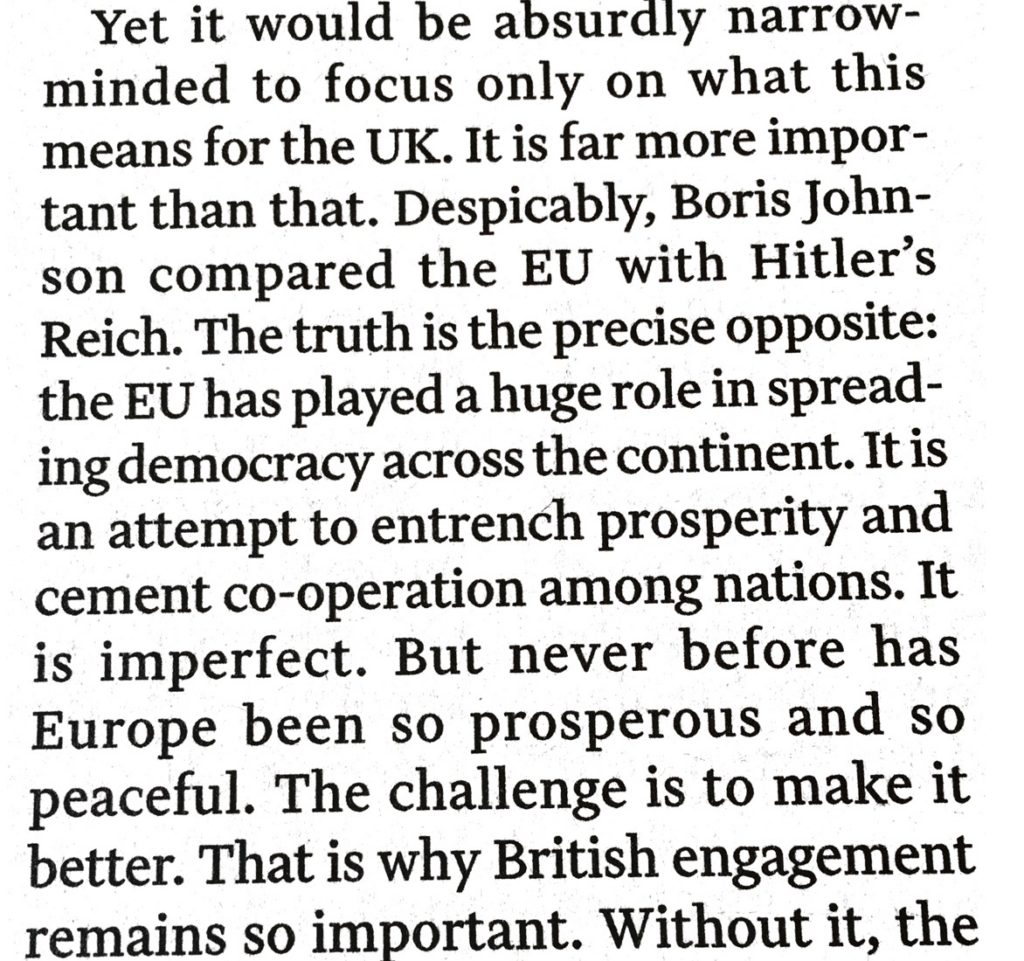One of the things that the Brexit catastrophe shows is that neoliberal economics is very bad for democracy. That’s because, for neoliberalism, inequality is a feature, not a bug. Some of us have been saying that for quite a while — and wondering why it has taken until 2016 for the penny to drop. But now it has. As Joe Stiglitz puts it:
Letting bygones be bygones is a basic principle in economics. On both sides of the English Channel, politics should now be directed at understanding how, in a democracy, the political establishment could have done so little to address the concerns of so many citizens. Every EU government must now regard improving ordinary citizens’ wellbeing as its primary goal. More neoliberal ideology won’t help. And we should stop confusing ends with means: for example, free trade, if well managed, might bring greater shared prosperity; but if it is not well managed, it will lower the living standards of many – possibly a majority – of citizens.
Which is why Obama’s proposed Transatlantic Trade and Investment Partnership deal with the EU should now be rejected by the EU.

